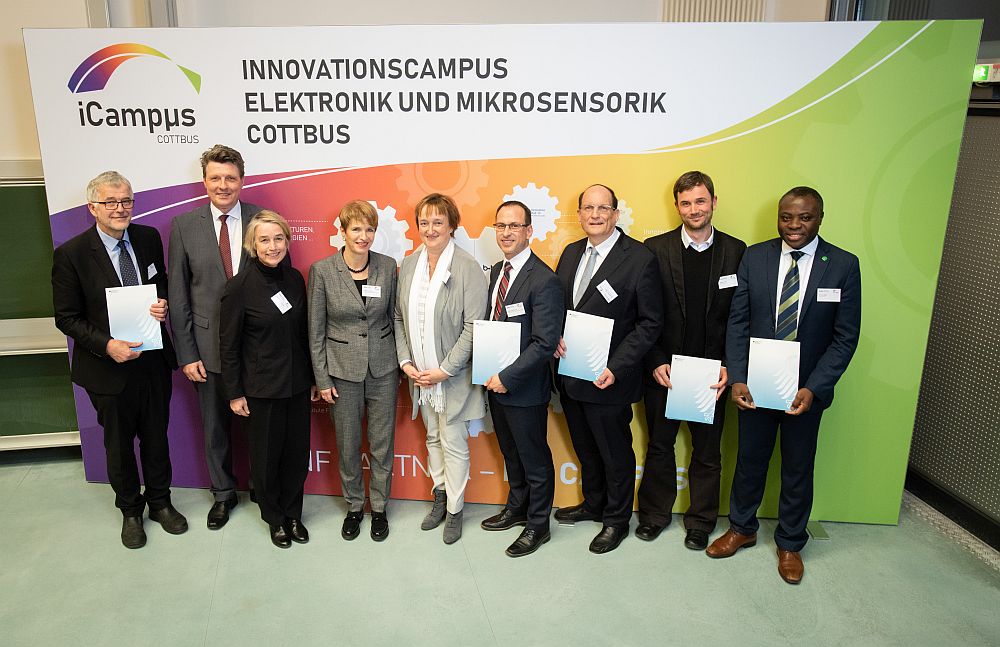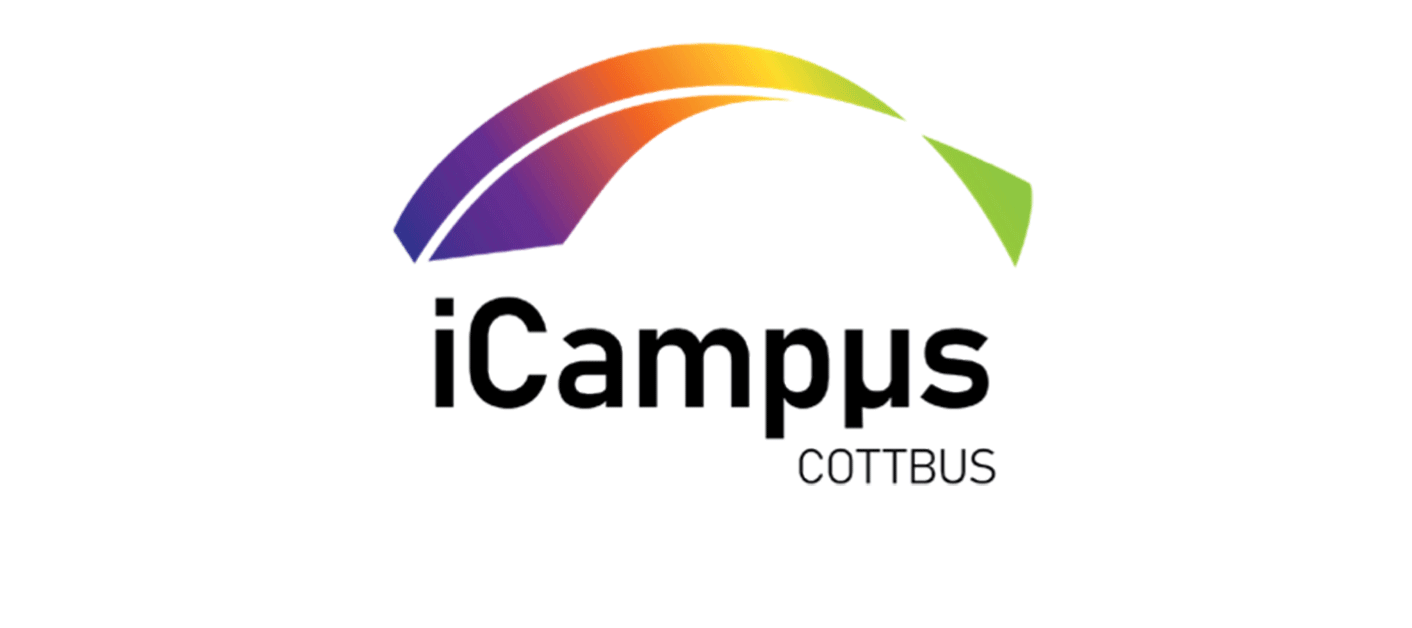Combined expertise in microsensorics
The “Innovation Campus Electronics and Microsensorics Cottbus” takes up its work


Modern life could not be imagined without microsensors. Sensors tell smart homes when to raise and when to lower the blinds. They measure the temperature and humidity to make central heating more efficient than ever before. Tiny motion sensors even detect the trips and falls of elderly or infirm patients and help alert carers and emergency services. In every walk of life from agriculture 4.0 to smart health and industry 4.0, sensors are the eyes and ears of the digitalized world.
The Innovation Campus Electronics and Microsensorics Cottbus brings 40 researchers and scientists to Cottbus, where they are innovating the sensors and sensor systems of tomorrow. Four high-profile partners from outside the university, the Leibniz Institute Innovations for High Performance Microelectronics IHP, the Leibniz Ferdinand Braun Institute FBH, the Fraunhofer Institute for Reliability and Microintegration IZM, and the Fraunhofer Institute for Photonic Microsystems IMPS, have joined the Innovation Campus to cooperate with ten departments of the Brandenburg University of Technology Cottbus-Senftenberg.
“Microsensors have begun to play an enormous role in virtually every walk of life. Even so, we are still only at the very beginning of a new era of connectivity that will continue to evolve rapidly and revolutionize the way we work and the way we live”, explains Professor Harald Schenk, head of the BTU department of micro and nano-systems, director of the Fraunhofer Institute for Photonic Microsystems, and project coordinator for the Innovation Campus. “As rich and diverse as the potential applications of microsensors are, the features, functions, and capabilities they need to deliver are just as diverse. Specialized applications, like agriculture 4.0, cannot be served with standard off-the-rack solutions. Instead, we need custom solutions, designed in close cooperation with their intended users.
It is the stated mission of the Innovation Campus, or iCampus, to explore, capture, and understand these requirements and to find the right solutions by combining the competences of the university and independent research organizations. The BTU’s president, Professor Christiane Hipp, believes: “This close partnership between the BTU and the research institutes of the Fraunhofer Society and Leibniz Society active in sensorics, microsystems engineering, photonics, and digitalization enable us to bring together our shared expertise and research competences and to make it become more than the sum of its parts at our Cottbus site.”
The project will focus on transferring the results of the applied research and development efforts into private enterprise, to initiate technology spin-offs, and to boost the region’s appeal for technology professionals and students. There will be a close link between the Innovation Hub 13 project, launched by the BTU and the Technical University of Applied Sciences Wildau in 2018 with funding from the German Ministry of Education and Research.
The Innovation Campus Electronics and Microsensorics Cottbus officially took up its work on 15 November 2019, with approx. €7.5 million in support from the federal government’s immediate funding programme. Germany’s government has committed to assisting the regions most affected by the decision to phase out coal in their transition to new economic models until 2038. Part of this initiative saw the introduction of the immediate funding programme for traditional lignite mining regions for 2019 to 2021, providing a total of €240 million in ready funds, of which €80 million were assigned to the state of Brandenburg. The German government is expected to continue its support for this transformational effort in early 2020 with the economic support act for coal regions, which promises a total of €40 billion in funding, including €500 million to support Brandenburg until 2038.
Last modified:
 Fraunhofer Institute for Reliability and Microintegration IZM
Fraunhofer Institute for Reliability and Microintegration IZM